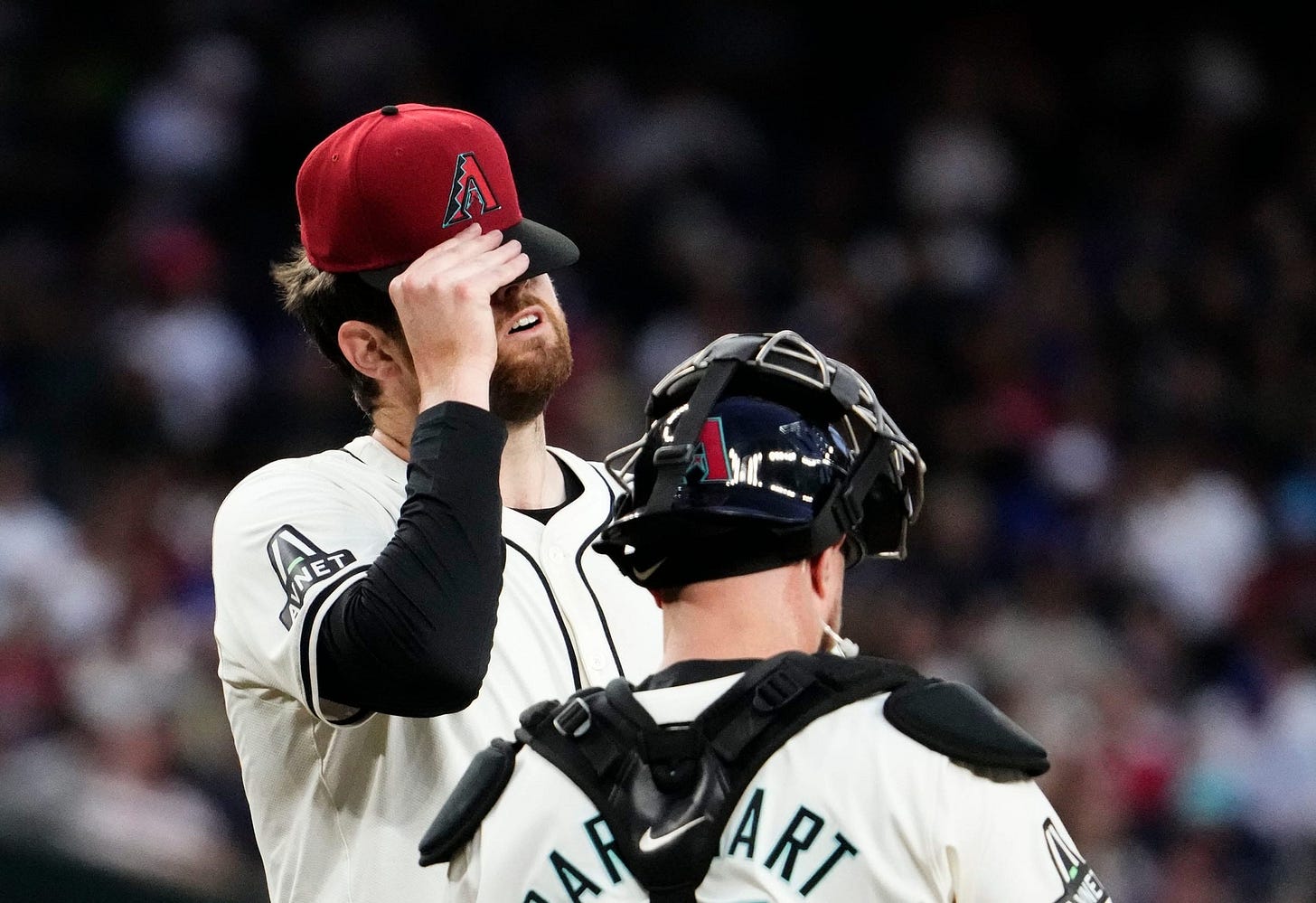Blame owners, ban closed leagues, and more
The Out in Left Weekly: June 9, 2024
MLB
Blake Snell is hurt and Jordan Montgomery is bad—but don’t let owners off the hook
Guided by superagent Scott Boras, ace lefties Blake Snell and Jordan Montgomery waited until the end of March to sign free agent contracts with the San Francisco Giants and Arizona Diam…




